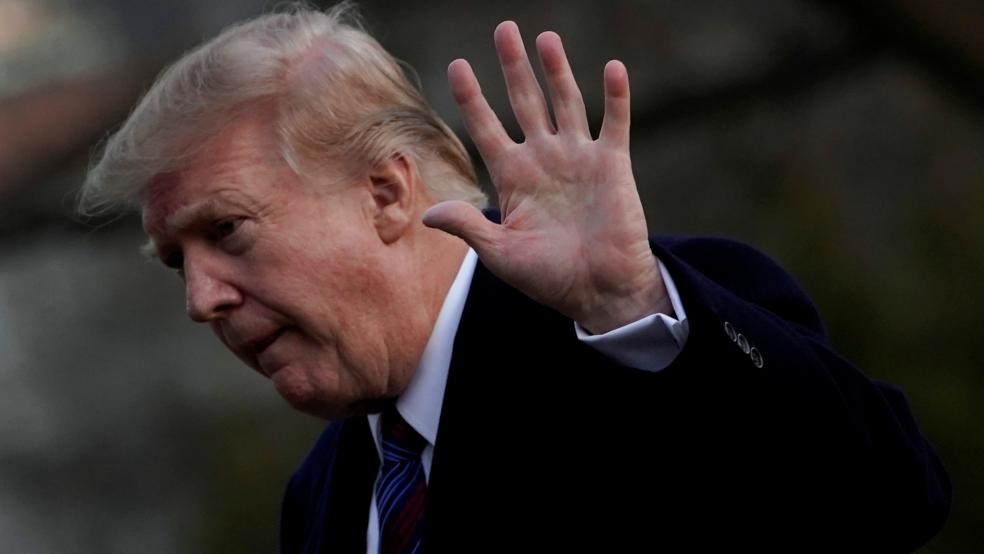Congressional negotiators looking to hammer out a bipartisan border security spending deal and prevent another government shutdown at the end of next week are reportedly closing in on their goal.
“We’re 95 to 98 percent done,” Senator Patrick Leahy of Vermont, the ranking Democrat on the Senate Appropriations Committee, said, according to The New York Times.
The deal being finalized could provide between $1.3 billion and about $2 billion for border security, the Times says — far less than the $5.7 billion President Trump has been seeking for construction of some 230 miles of wall on the southern border, and less than the $2.5 billion the president publicly shot down after Vice President Mike Pence floated it in December.
“Talk of a wall has given way to ‘bollard fencing’ and strategic placements,” the Times’ Emily Cochrane and Annie Karni report.
Trump has reportedly indicated he’d accept a deal around $2 billion, and members of the conservative House Freedom Caucus, which had earlier pushed the president to take a hard line on wall funding and the shutdown, “indicated that any number even slightly above $2 billion would satisfy them for now,” the Cochrane and Karni say.
But Democrats are still pushing back on the number, and it’s unclear how much of the money would go toward barriers. “We will not agree to $2 billion in funding for barriers,” said a spokesman for House Appropriations Chairwoman Nita Lowey (D-NY).
There are other issues to be ironed out, too, according to the Times:
“[N]egotiators remain far apart on detention beds under the control of Immigration and Customs Enforcement to house families detained at the border with Mexico. Funds currently allocated are enough for 40,520 detention beds. Democrats asked to limit the number of beds to 35,520 for the remainder of the fiscal year and increase funds for other alternatives to the practice of family detention. Republicans want substantially more beds.”
Whatever the details of the final deal, it’s clear the president won’t be getting close to the $5.7 billion he’s sought. Will he sign off anyway?
Politico noted that the White House is “increasingly aware that the president is trapped,” given that Republicans have no desire for another government shutdown and have cautioned Trump against declaring a national emergency to get the funding he wants. That leaves Trump with few options.
The bottom line: At this stage, at least, it appears likely that he’ll accept whatever bipartisan compromise the conference committee reaches, even if it falls well short of his demands — and then potentially pursue more wall funding via executive action that stops short of declaring a national emergency.
With Trump, though, nothing is final until it’s final — and even then, he may change his mind or otherwise scuttle a deal. He’s scheduled to speak at his first campaign rally of the year on Monday night in El Paso, Texas. The Washington Post’s Erica Werner reports that the planned appearance has raised concerns from some congressional aides that Trump “could veer back to rhetoric on the wall that could throw any deal they reach into question.”
Why it matters: A compromise deal would end the months-long uncertainty over federal funding and, potentially, cool some of the conflict over Trump’s border wall, even if it doesn’t resolve the issue. But it also could have broader significance for the Trump presidency, The Washington Post’s Jennifer Rubin suggests, marking him as a lame duck: “A week from now, [House Speaker Nancy] Pelosi most likely will be able to point to a Democratic victory on the single most important issue for Trump and his base. If he isn’t getting the wall, he’s not getting anything else on his wish list that requires legislative approval.”





